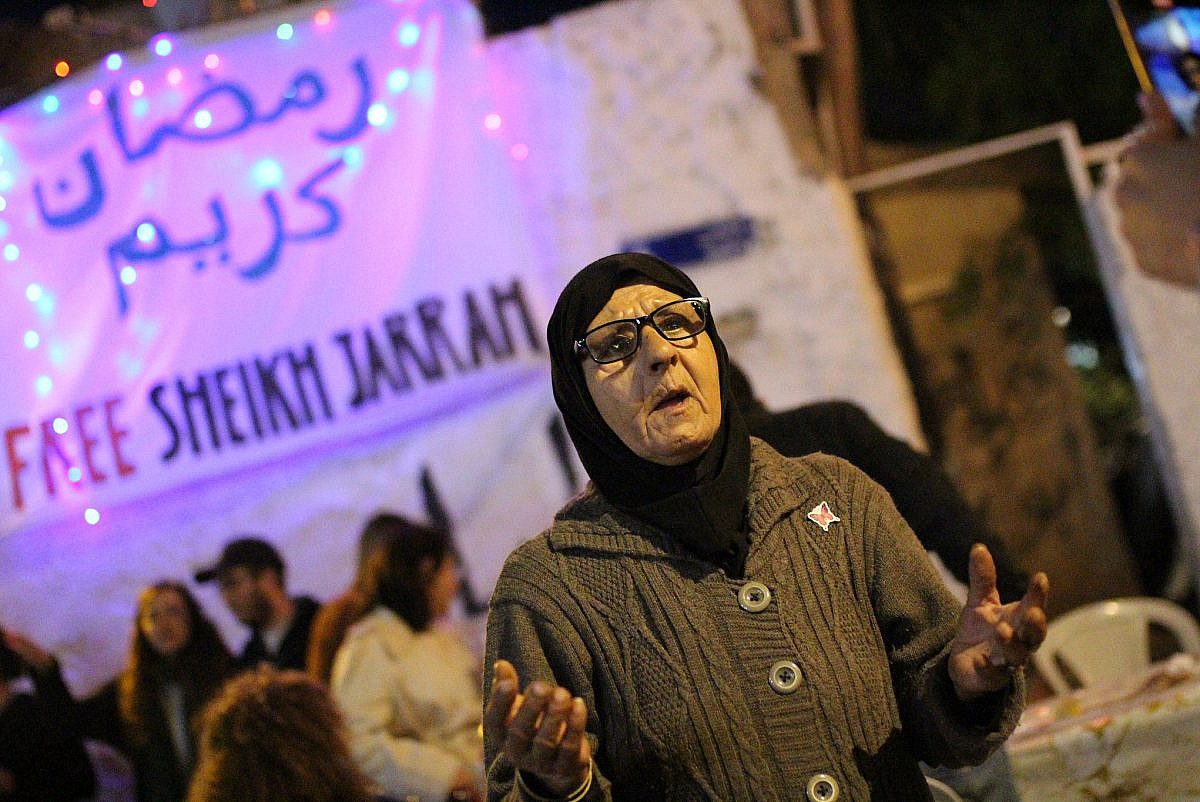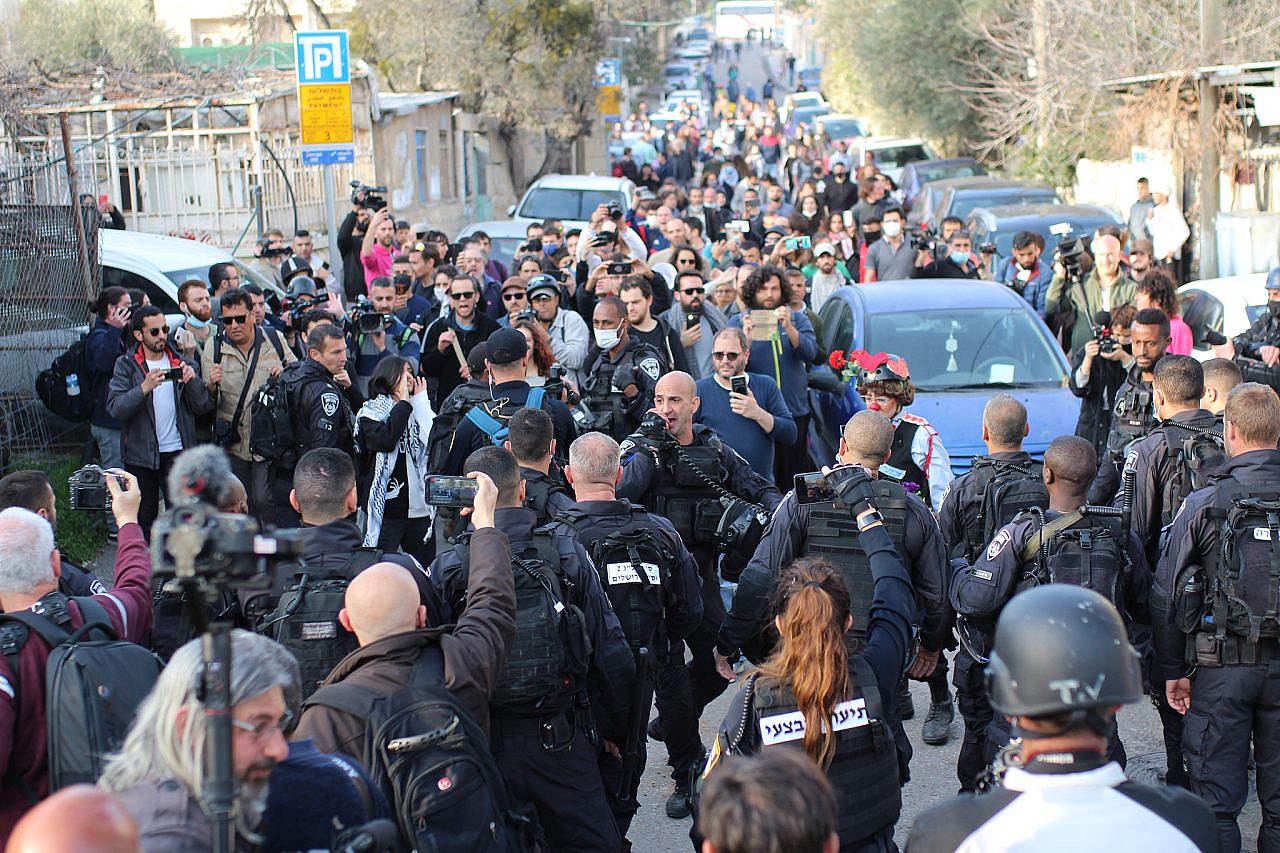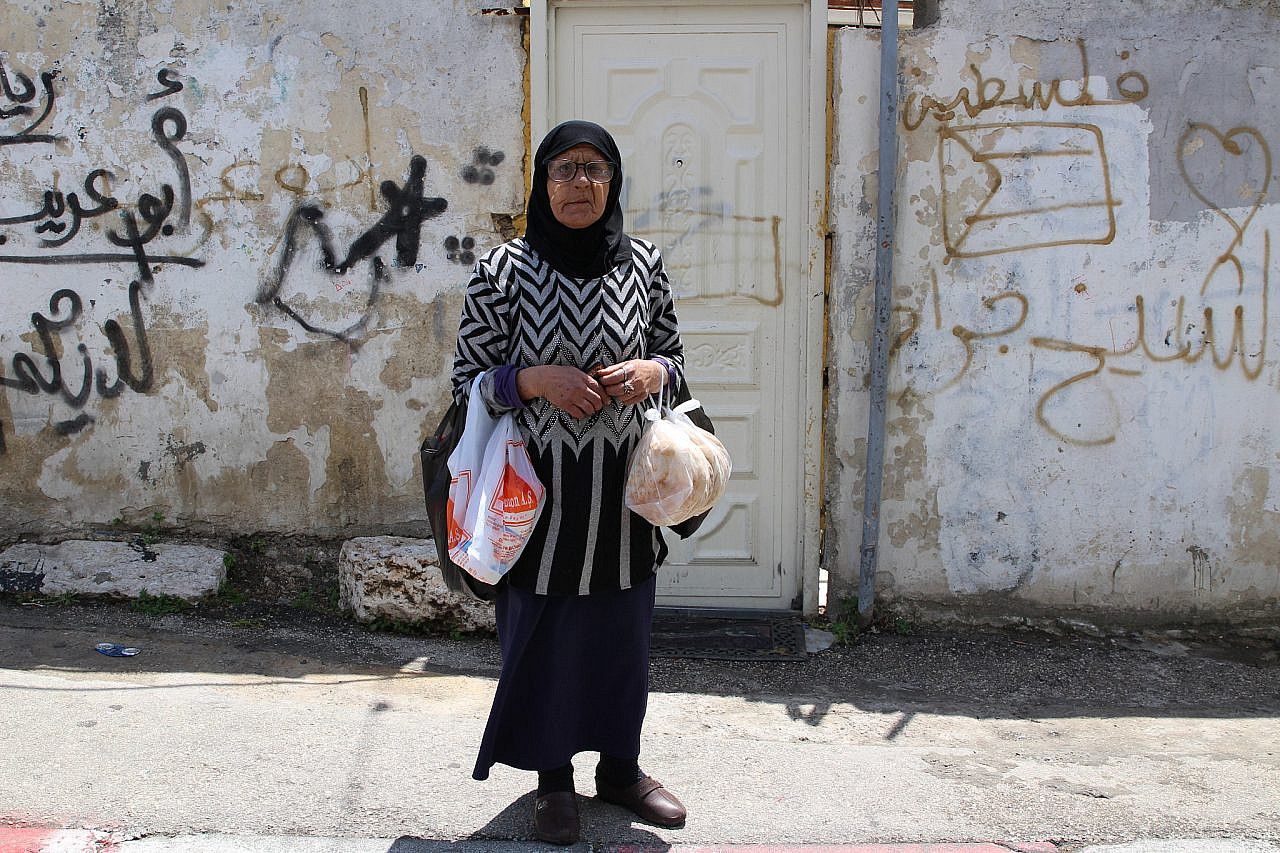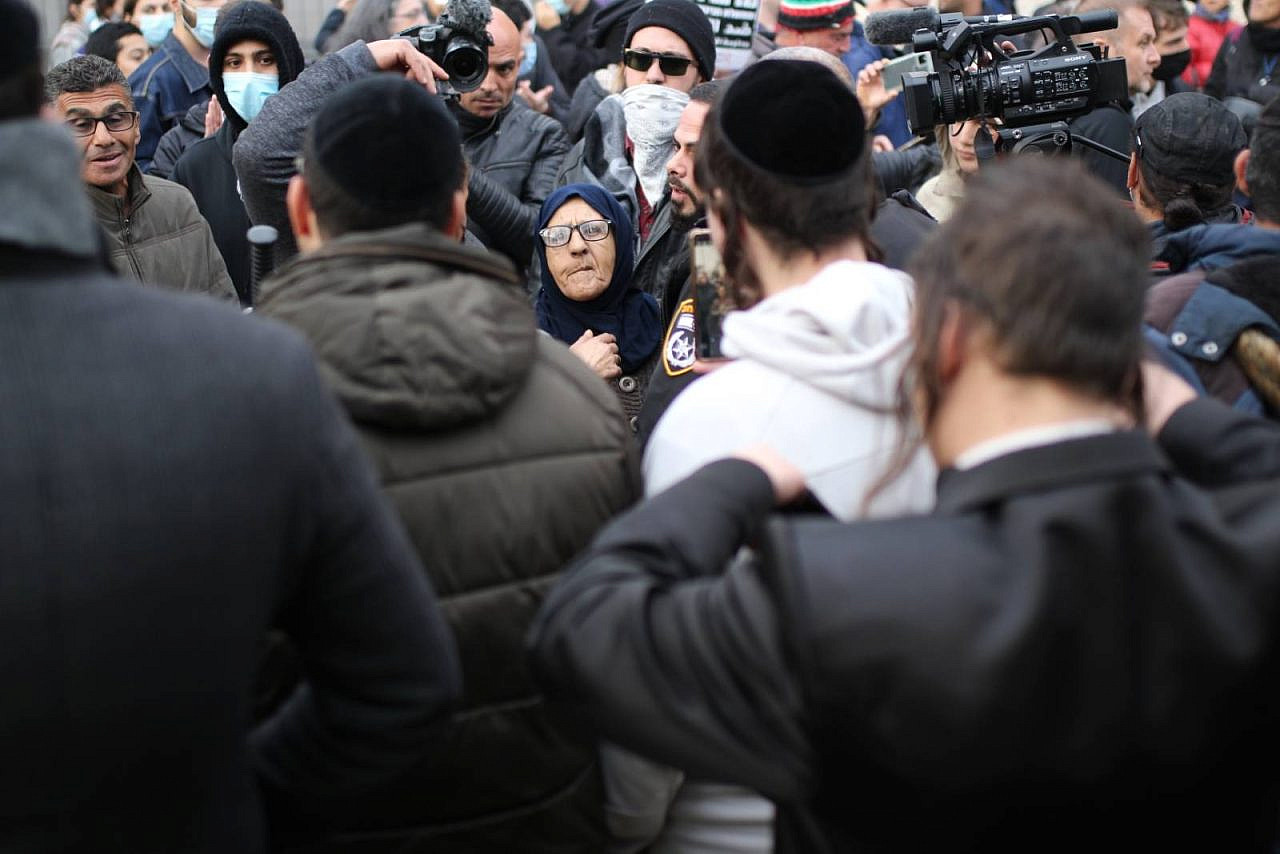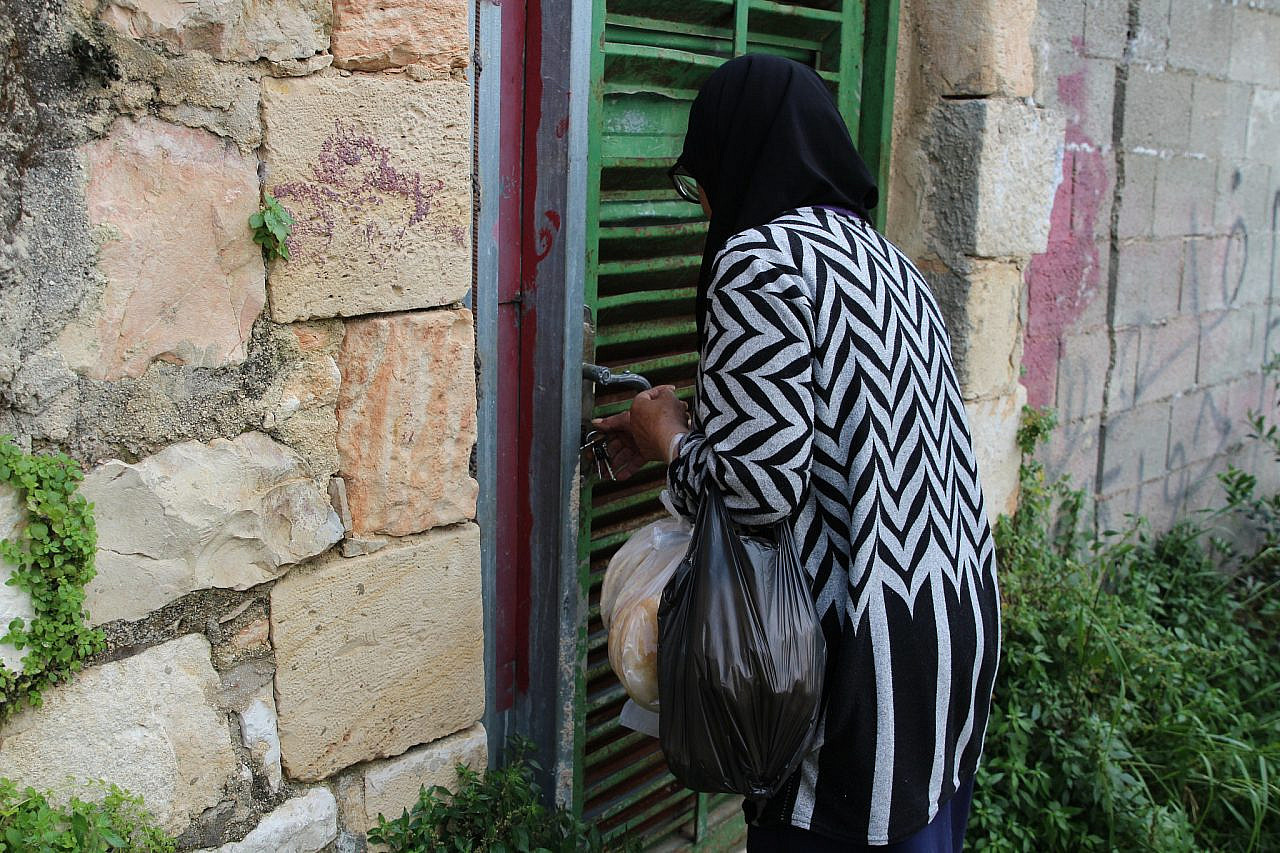On Dec. 4, Fatma Salem, a lifelong resident of the East Jerusalem neighborhood of Sheikh Jarrah, passed away at the age of 71. She died in the home that she spent her final years battling to keep hold of, as Israeli settlers — with the backing of the state authorities — sought to forcibly expel the Salem family as part of a broader effort to “Judaize” Palestinian areas of the city. Fatma’s steadfast commitment to her community turned her into a symbol of the Palestinian struggle, in Sheikh Jarrah and beyond.
I first met Fatma in the wake of the events of May 2021. That month, Sheikh Jarrah became famous around the world: demonstrations against Israel’s attempts to expel Palestinians from the neighborhood catalyzed the uprising known as the “Unity Intifada,” as well as intercommunal violence between Arabs and Jews in so-called “mixed cities” and a war on Gaza. Fatma, along with her husband, children, and grandchildren — 11 people in total — lived in one of dozens of houses under threat of settler takeover.
Soon after, I began attending and photographing the weekly Friday protests in Sheikh Jarrah, and meeting the neighborhood’s residents. Fatma would often join the demonstrations; several took place right outside her home, on the western side of Sheikh Jarrah — an area known as Um Haroun, where some 40 Palestinian families are at risk of expulsion. These nonviolent protests are invariably met with police brutality, sometimes including mounted officers and the use of batons, stun grenades, and water cannons.
Prior to 1948, Um Haroun had been the site of a small Jewish community — Nachalat Shimon — whose residents were forced to evacuate during the war and received alternative housing in the west of the city. With Jordan occupying the eastern part of Jerusalem, its Custodian of Enemy property took over the homes of the Nachalat Shimon evacuees and began leasing them to Palestinians. Fatma’s parents, who were refugees from Jaffa, moved into their home in 1951, and Fatma was born a year later.
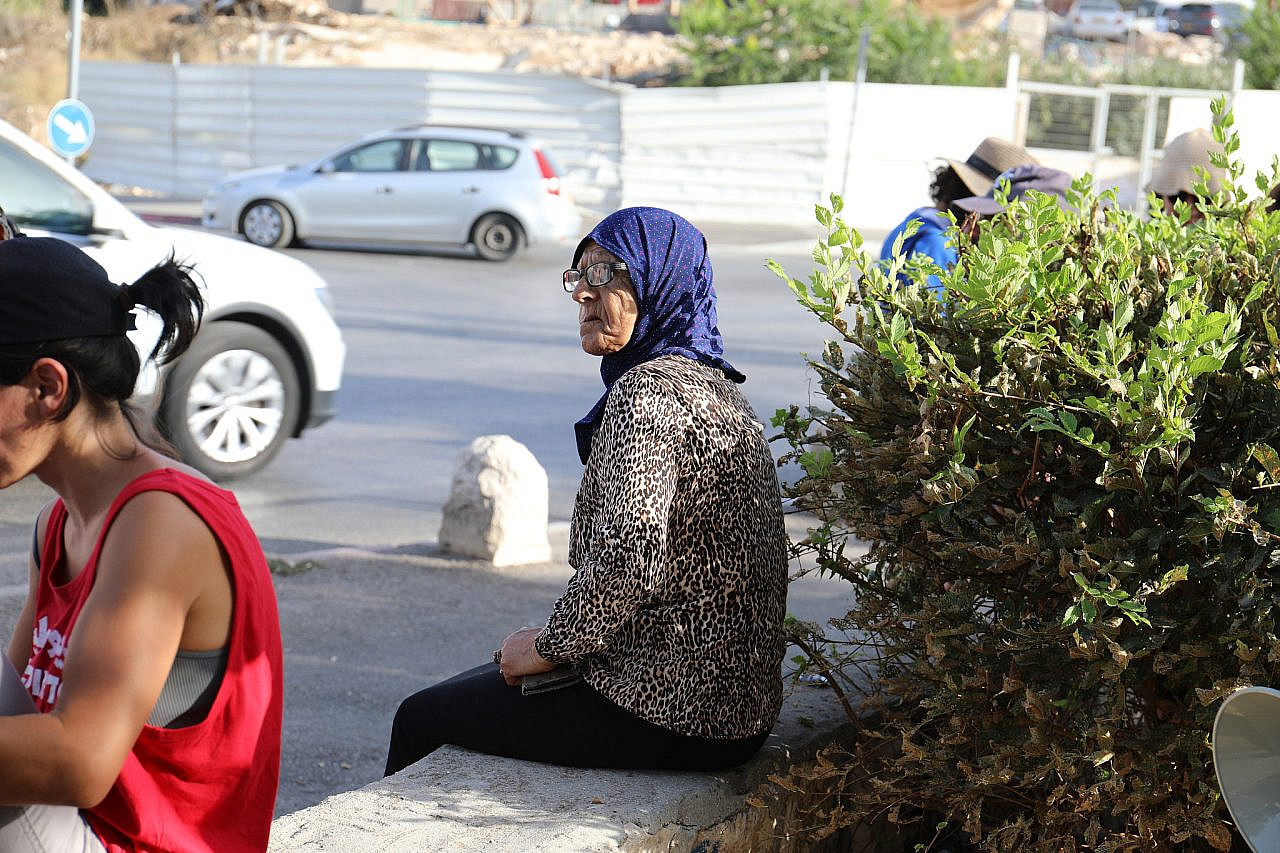
After Israel occupied East Jerusalem in the 1967 War, the Israeli Custodian General took control of the properties but continued leasing them to their Palestinian residents. In 1970, however, Israel passed the Legal and Administrative Matters Law, enabling Jews who owned property in East Jerusalem before 1948 to claim it back from the Custodian; no equivalent law exists for the Palestinians who were dispossessed during the Nakba, such as the Salem family.
When Fatma’s parents died in the 1980s, the Haddad family — who claimed to have owned the land prior to 1948 and were granted ownership of the property by the Custodian — received authorization from an Israeli court to evict Fatma and her family. This set in motion a decades-long legal battle over the Salem family’s right to remain in their home, which continues until today.
The struggle came to a head in May 2021, when Israel’s Supreme Court was expected to greenlight the expulsion of eight of the neighborhood’s Palestinian families. Tensions were further exacerbated by provocations from far-right political figures such as Itamar Ben Gvir, who set up a faux parliamentary office in the front yard of Fatma’s house; he would do the same again the following year. Most of the expulsions were ultimately frozen, with Israel likely fearing the local and international consequences of such a move and shifting gears to focus on expelling one family at a time.
But there was little reprieve for Fatma and her family. In December 2021, the far-right Jerusalem Deputy Mayor Aryeh King and his number two, Yonatan Yosef — who claimed to have acquired the rights to the property from the Haddad family — hand-delivered an eviction notice signed by an auxiliary unit of Israel’s Justice Ministry. Yosef, who is of no relation to any of the Jewish families that lived in Um Haroun prior to 1948, told Fatma: “This is our house and we will get it back.” (These days, Yosef is a regular counter-protester at the weekly Sheikh Jarrah demonstrations, where he sings into a megaphone: “We want Nakba now.”)
The Salem family kept fighting, and appealed the eviction order. In April 2022, the Jerusalem Magistrate’s Court accepted their appeal, prolonging an injunction on the family’s eviction. Though this meant that Fatma was able to live out the rest of her life in the home in which she was born, she died with the threat of eviction still hanging over the family.
Certainly, it cannot be said that justice has prevailed. Dozens of families in Sheikh Jarrah remain at risk of expulsion, while elsewhere in East Jerusalem, Israel continues to evict Palestinians in favor of Jewish settlers. I do know, however, that the local and international solidarity with the Salem family and others facing the threat of forced displacement fortified their struggle, showing the Israeli authorities that they cannot evict Palestinians quietly.
When I would see Fatma at the weekly demonstrations, it gave me a lot of strength, and I’m sure others too. I remember how, at one of my first protests, she stood in front of Yonatan Yosef and a few of his supporters and told him: “This house is mine.” Although she was accompanied by family members and neighbors, I thought to myself that she was very brave. She was a frail figure, she barely spoke Hebrew, and these men were hostile and had the backing of the state authorities; nevertheless, she stood there defiantly — for her family’s sake and for herself.
Fatma always expressed deep gratitude to those who came and stood beside her, sometimes being moved to tears. Once, at the end of a demonstration, she invited the women — Palestinians and Jews — into her home to thank us, and to enjoy each other’s company in a calmer setting: without megaphones, counter-protesters, or violent police.
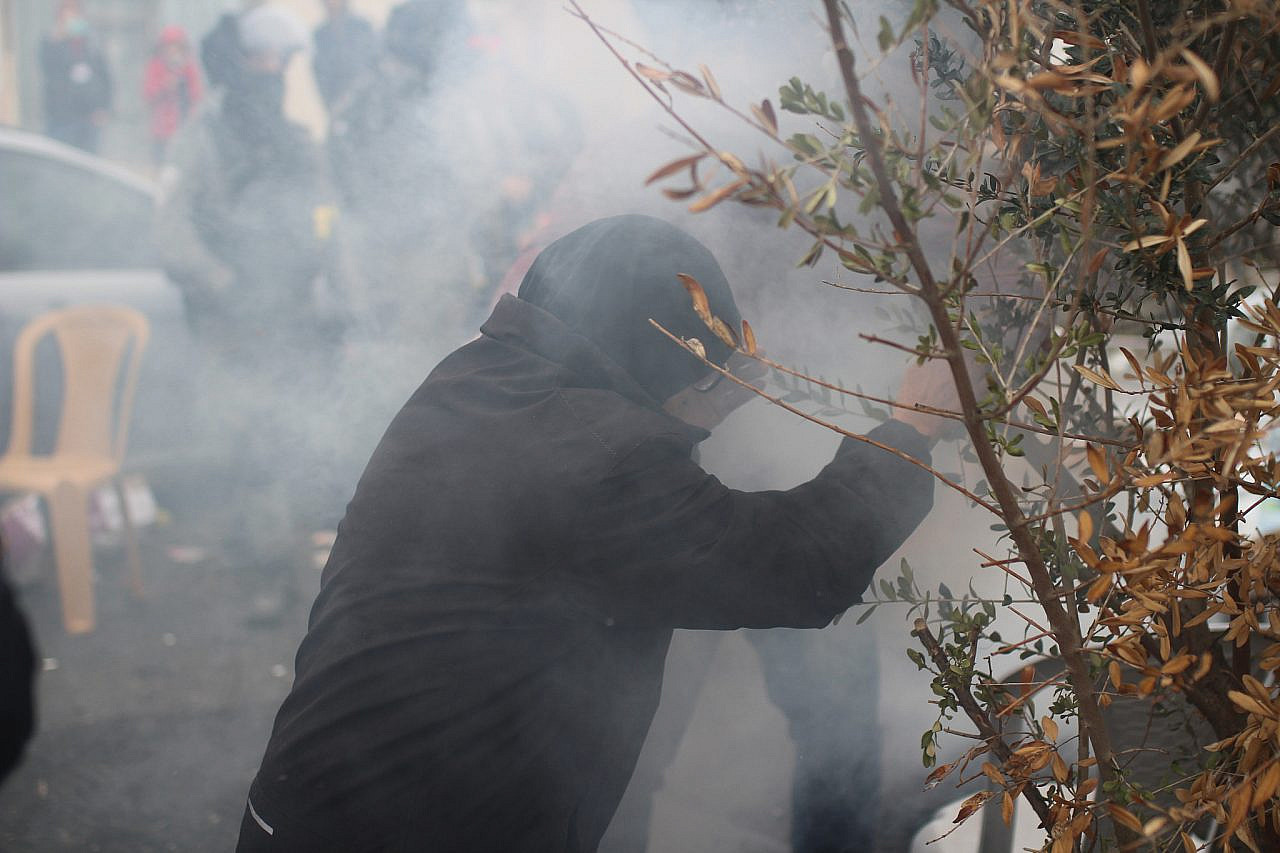
One day last year, I ran into Fatma at the grocery store while I was in Sheikh Jarrah to interview another family. She asked why I had come and how I was doing, and invited me to her home for something to eat. She spoke some Hebrew, I spoke some Arabic, and, somehow, we met in the middle. I asked how she had been managing with the uncertainty surrounding the threat of eviction, and she told me she was having trouble sleeping and eating.
That was one of my last conversations with Fatma. The next court hearing was supposed to take place in November, but because the war raised the likelihood of an eruption of violence in Jerusalem should the eviction go ahead, it was postponed indefinitely. In the meantime, Fatma died about a month later in the relative comfort of her home.
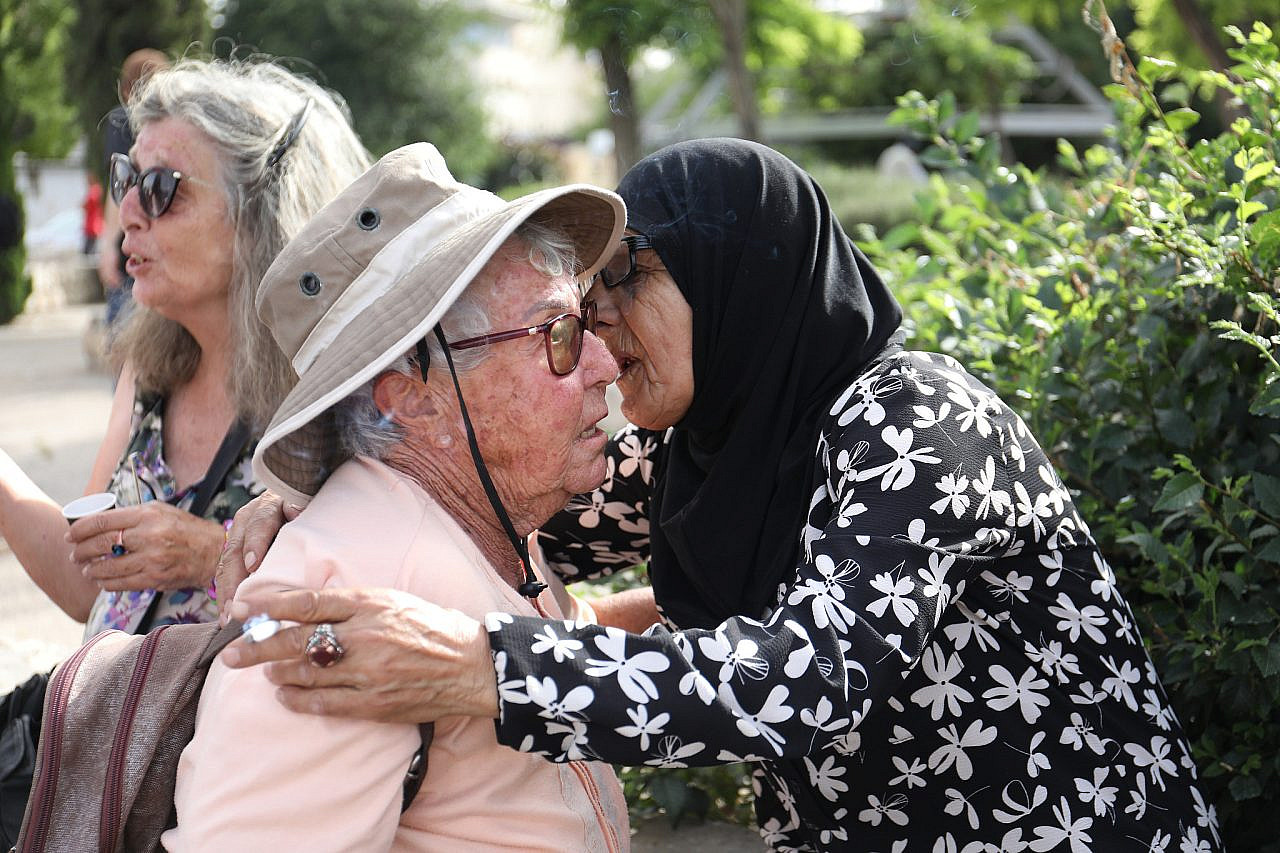
Fatma Salem, you were a gentle and powerful light. I thank you for your hospitality, and for helping to teach me what it means to work together in solidarity — especially in these difficult days. I am grateful that you could spend your final moments in your home alongside your beloved family. Allah yerhamak, may God have mercy on you.

